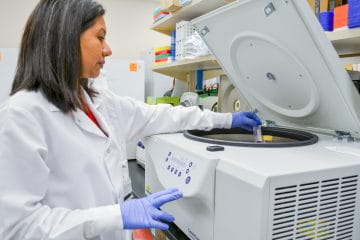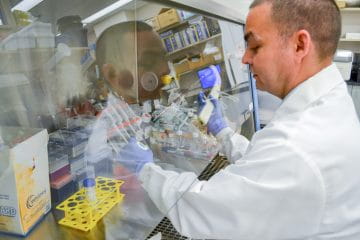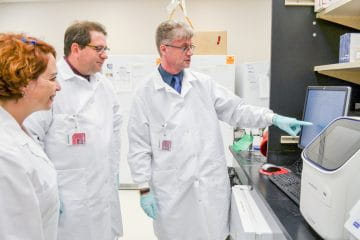Investigators in the Gene and Cell Therapy program work to improve current treatments, develop corrective therapies and explore new technologies to address genetic disease. A major focus of the research group is to examine the interaction between gene therapies and the immune system.
Using hemophilia as a model, the group seeks to create innovative approaches to induce immune tolerance to current treatments and correct the genetic malfunctions that lead to disease.


